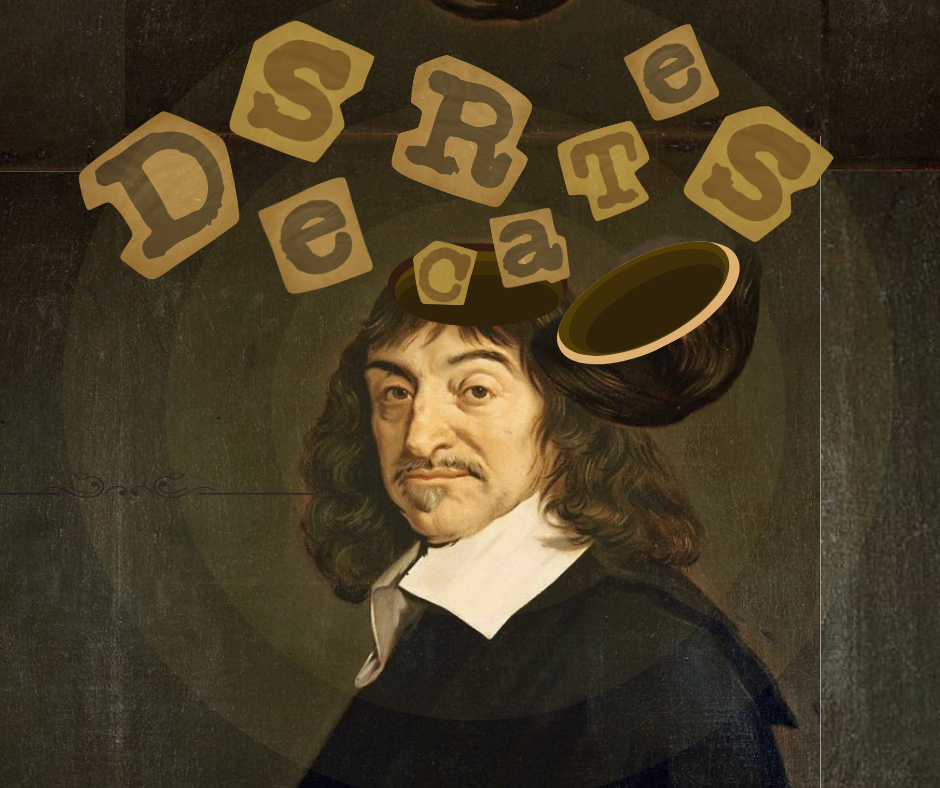
Descartes' Proof is a Circular Argument
Examining a fallacy in one of philosophy’s foundational pillars.
R
éné Descartes, French philosopher responsible for the Latin phrase Cogito Ergo Sum – both one of the most reiterated and misinterpreted statements in philosophy – was perhaps most famous for his Cartesian method of investigation, his “proofs”, and his patronage of the modern fields of abstract scientific investigation and mathematical thought.* Cogito ergo sum is usually followed with the English interpretation of “I think, therefore I am”, but the statement summarized Descartes’ logic behind the validation of his existence, and as its explanation, “I think” doesn’t quite encompass its meaning. In order to confirm that he was, in fact, in existence, and therefore subject to his own thinking and actions**, he had to be certain a part of him could exist. Under his experiment of “doubting everything”, his arm could be a mirage, a missed signal, a simple object that wasn’t a part of his actual control; his senses could be misleading, misrepresenting reality; all aspects of his life – including Life itself – is contestable; Descartes realized that his mission to be absolutely sure of any given ‘fact’ was a futile mission.
To him, there was no true proof behind any statement, no bedrock of knowledge upon which to base his thinking. That was the only true certainty: that there is no certainty. Therefore, the establishment of the existence of his doubt validated his existence, ergo, Cogito (in this context, I doubt, not I think) ergo sum (therefore, I am).
The Analysis
Despite the immense influence this statement has produced, it possesses a crucial flaw – an inherent contradiction in the starting presumption of his experiment posed to invalidate its stature. Descartes, a mathematician, dedicated himself to a pursuit of knowledge he deemed logically infallible, detailing each step of his reasoning with sound reasoning, which if acceptable to his readers would consequently have them accept the whole proof. This mode of establishing his thoughts was revolutionary, enlightening, and a precursor to modern thought in fields stretching from abstract thought to popular science. [1]
The first tenet of this analysis remarks the context in which Descartes built his apparently infallible experiment, and questions the existence of religious influences over its results. The second examines the fabric of Descartes’ logic, outlining an oversight in its foundation: a key presupposition to his “doubt experiment” which rids it of its logical integrity, and should subject it to (at the very least) a critical analysis by those who would choose to follow it.
Religious Influence?
Descartes, born in France in 1596, would spend much of the century XVII in the Dutch Republic, a member of the Protestant Dutch States Army, through which during his station he believed a “divine spirit” had ultimately guided him to his cogito and will to pursue science. It’s through this statement that an interesting and notably Cartesian connection can be made between faith and scientific logic, Descartes affirming their intertwined nature in his arguments, and aligning his conclusions with the faith of the Catholic Church. [2] An initially devout Roman Catholic, he would belong to a Protestant university and army and baptize his daughter Protestant – and yet his ties to the Church did not falter.
A Fatal Presupposition
Theoretically, Descartes’ proof questions everything – including aspects of the mind connected to the senses – but disregards the fallibility of one’s capacity of thought (the mind that produces them, the logic that lines them, and the thoughts themselves), from which doubt, the conclusion of his proof, and his own considerations, exist. His re-statement of the idea that “nothing is certain” with the addition of “…except that nothing is certain” is a syntactic demonstration of what a circular argument is: a fallacy, beginning with its end conclusion. [3] He does not question his ability to doubt, when it, like his senses, has no veritable foundation under it – and the explanation that “even doubting doubt defines doubt’s ability” is fallible logic, and a linguistic loophole that may have no connection to reality. In short, he divides his capacity to think from his senses, and questions everything except it, and his experiment therefore returns to the “discovery” that he can doubt doubt, and his logic, reliant on the semantics of that statement, concludes that the (not-questioned) ability to question everything proves… everything.
It’s a necessary disclaimer to add that the preceding paragraph is an extensive condensation of his logic, and Descartes was a pioneer in every field he belonged to; it is the comble of his surrounding influences and his key conjecture – because it is a conjecture – that call for a closer look at the background of one of his most famous thoughts. Additionally, simply insisting that “because he doesn’t question his own questioning, his argument is invalidated” is feeding into the linguistic yarn upon which rests his reasoning, pushing those pursuing this line of questioning into an impure sense of logic. [4] Descartes’ cogito is a mode of thinking surviving close to four hundred years of changing society. It belongs to the concrete of modern philosophical thought – but that doesn’t mean that it shouldn’t be brought into question.
Descartes said Cogito, ergo sum. We rephrase: Cogito, ergo sum conturbatus.
[1] See Is Philosophy A Science? for a closer look at what really divides the subjects.
[2] https://www.newadvent.org/cathen/04744b.htm
[3] A basic circular argument could be: “It’s going to rain because it’s cloudy, and it’s cloudy because it’s going to rain.”
[4] Impure logic, in this context, can be argued to stand as logic based upon its language, and can be discerned through its gaps when translated or compared to the reality it describes.
[5] (us/a/um) I think/doubt, therefore I am confused.

